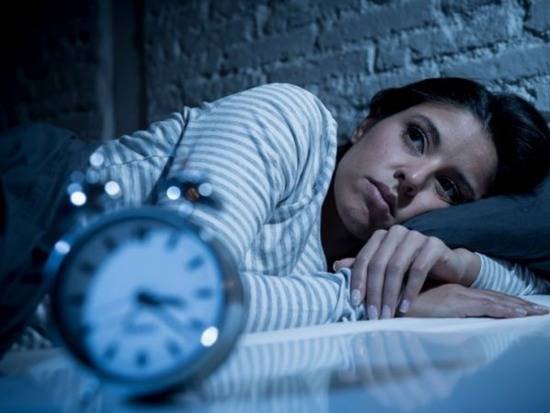We know that unhealthy blood sugar levels can leave us feeling groggy, cranky, and craving sweets. But is there a connection between blood sugar and sleep? According to a new study published, yes.
The research, which was based on two large internet surveys, is the first to draw a solid connection between sleep disturbances and type 2 diabetes, a condition characterized by insulin resistance and high blood sugar levels. The results were published online in the journal Menopause and showed that sleep-related symptoms were significantly higher in menopause-aged women with type 2 diabetes than those without the disease.
So what explains this connection? The researchers suspect hormones are at the root. Previous research has shown that women in menopause—a time of life when female hormone levels decrease drastically, causing symptoms like hot flashes, irritability, and low libido—are more likely to develop diabetes because of the way sex hormones affect insulin. In turn, sleep has also been connected to hormones like estrogen and progesterone, which is why it won’t surprise you to learn that women in menopause are also more likely to have trouble getting high-quality ZZZ’s.
The hormonal changes that come with menopause are inevitable, but seeing as they’re affecting both blood sugar and sleep patterns, they’re also something that should be addressed. So what can we do about it? There’s still a lot to learn about the connection between sleep and blood sugar, so for now, we can try to tackle each problem individually. As Stephanie Faubion, M.D., medical director of the North American Medical Society, explained, “Sleep is an important determinant of health, and women with poor sleep should be seen and evaluated for common and treatable sleep disorders such as insomnia, obstructive sleep apnea, and restless legs syndrome.”
If you have prediabetes or type 2 diabetes, you’ll want to work with your doctor to make targeted lifestyle changes that help lower blood sugar naturally. And finally, to promote general hormone health and ease the transition into menopause, try one of these herbs and supplements for perimenopause, or, as Anna Cabeca, OB/GYN and women’s hormone health expert wrote, try intermittent fasting. “I recommend that all my perimenopausal clients adopt “intermittent fasting.” She recommends starting out with a simple 13-hour window between dinner and breakfast the next day.
- Gretchen Lidicker, M.S.
Author’s Note:
Get our products now from our archive at surukang.com for your pussy-tightening, tummy-flattening, pink lips, hips and butt enlargement, dick enlargement, etc.






